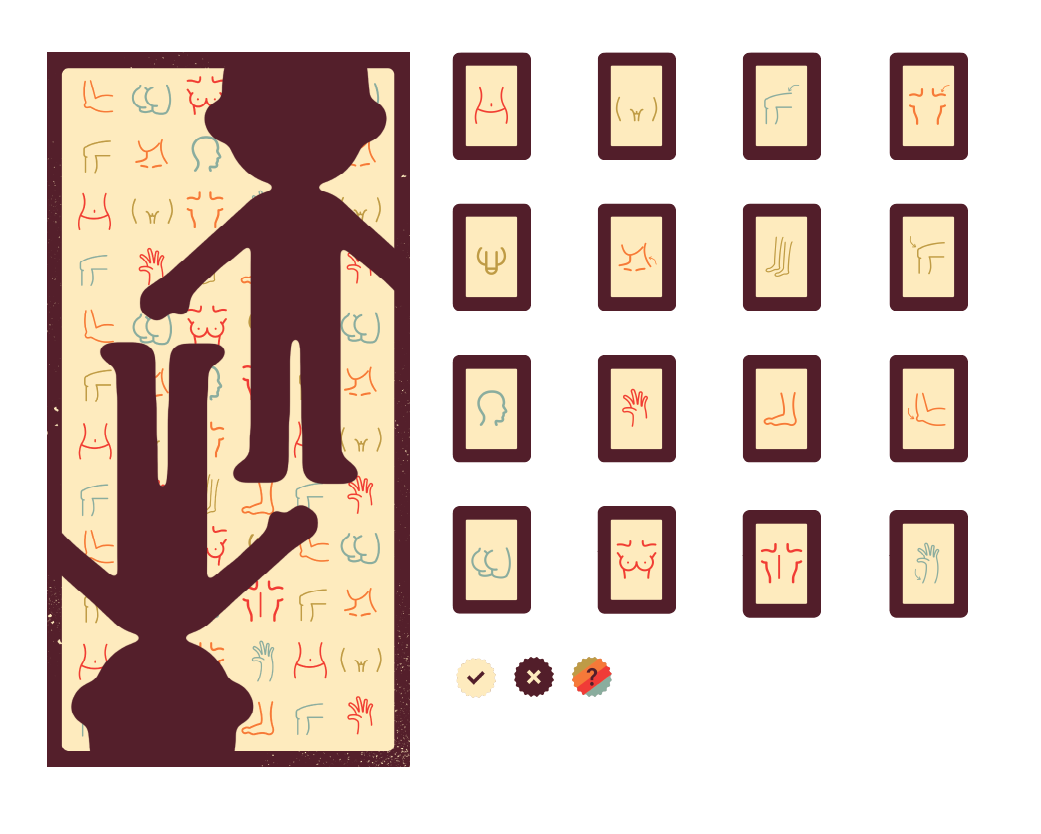TOUCH
A game about the boundaries of physical touch
Facilitated game-like activity that enables youth and children to explore the boundaries of physical touch. TOUCH aims to give individuals agency over their bodies to become more self-aware of their body and wellbeing. In response to a lack of sexual awareness and susceptibility to trafficking among India’s most vulnerable, TOUCH hopes to build capacity in critical thinking and decision making in real life scenarios.
TEAM: Danny Dang, Ker Thao, and Kate Wallace
ROLE: design researcher, design strategist, facilitator
SUPPORTED BY: India China Institute, The New Challenge Fund for Social Innovation
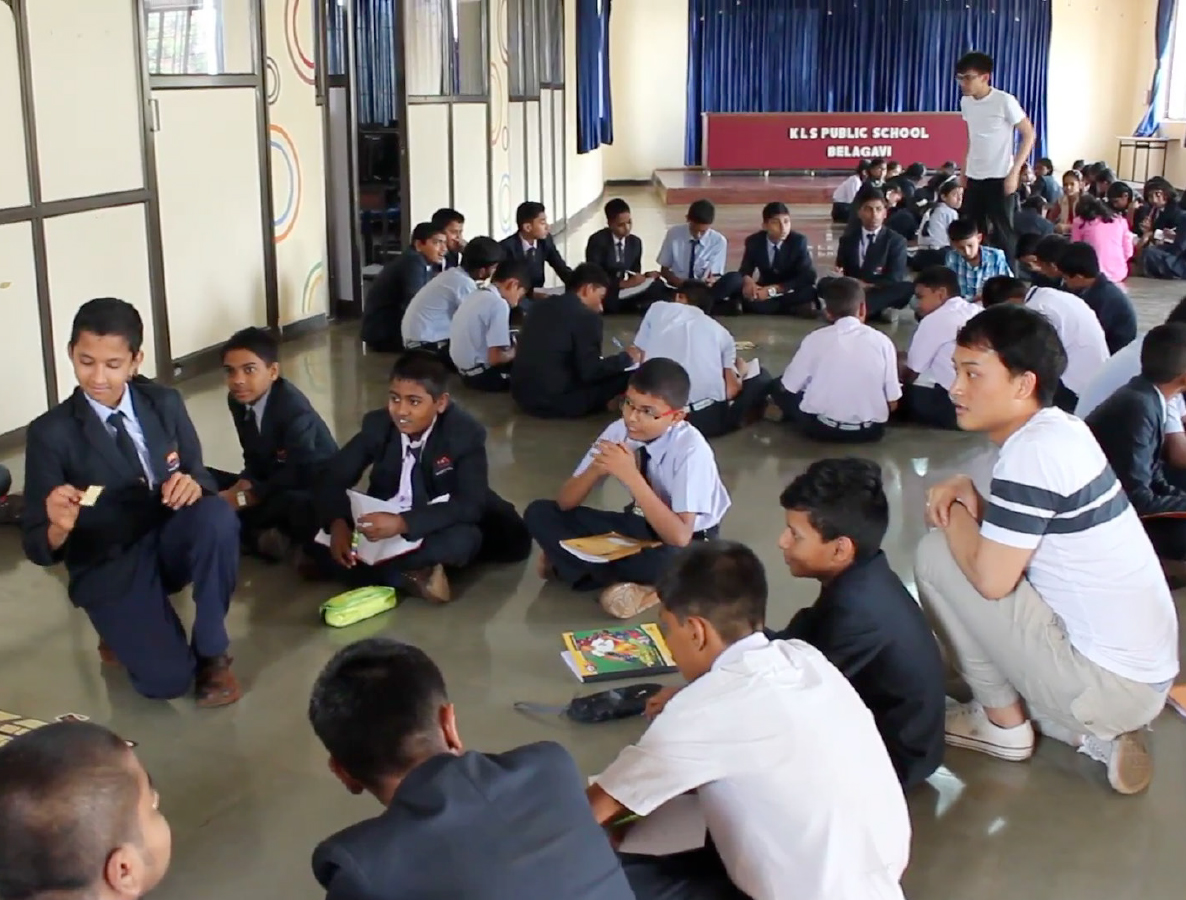
Overview
TOUCH is a facilitated workshop taking the form of a physical board game. The product of a three-year student-led research project, TOUCH aims to address the lack of sex and body education and trafficking issues in India. By building capacity and critical thinking through real-life scenarios, TOUCH empowers individuals to have agency over their bodies to become more self-aware.
Process
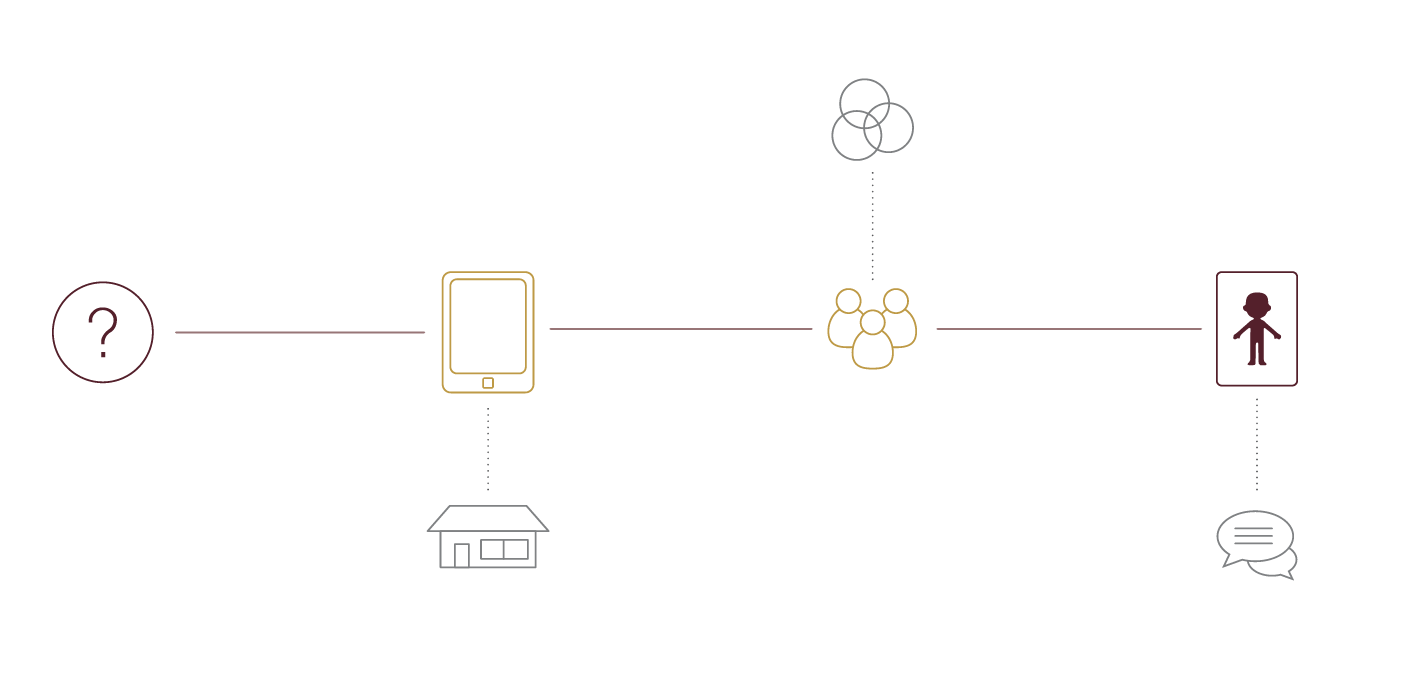
Primary research
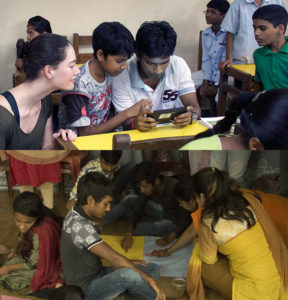
The first phase of this project took off as a larger inquiry to how might we prevent youth and children from falling victim to trafficking and exploitation in India. Partnering with DataWind tablets, the first iteration took the form of a game application. With the aim of equipping youth with knowledge and skills to identify and avoid risky situations, user testing was conducted in the first year with school children
in New Delhi.
In the second phase, I conducted ethnographic research in New Delhi and Kolkata. Three main questions guided the research:
What are the root causes of trafficking and exploitation?
How are non-governmental organizations acting to combat the issue?
How can we create an effective tool to help educate the vulnerable youth population?
Through establishing partnerships with The Destiny Foundation and GOAL India, I was able to understand and identify leverage points within the affected communities. This aided in the process to map out the ecosystem and see where both organizations focused their efforts. By working directly with community experts and youth leaders, I was able to experience first-hand the needs and wants of these communities. These insights enable the team to take a more practical approach in addressing the larger issue of trafficking and exploitation.
RESEARCH APPROACH
Our research revealed that trafficking and exploitation in India is a complex issue that requires multiple levels of intervention. Already being addressed from a top-down approach through policy, within our limited time frame and resources, we as designers, were best positioned at a more bottom-up grassroots initiatives. Based on our research, we focused in on education as a tool of empowerment. We saw the opportunity to address the lack of sex and body education in India. Using a fun and interactive approach, we developed TOUCH as an educational workshop tool with board game mechanics. To be used in and outside of educational settings, TOUCH acts as a tool for teachers, educators, and advocates to start conversations around the sensitive and taboo topic of sex and the body in India.
PROTOTYPE TESTING
In the summer of 2017, the beyondABC team traveled to Belgaum, India. In collaboration with the Lions Club Foundation in Belgaum, we conducted workshops in four schools, private and government-funded, with approximately 500 students, age ranging from 8-13. Originally designed for only 10 students per set, this experience tested the ability of TOUCH to be scalable for groups of 20-30 children.
Workshop sessions were conducted considering cultural sensitivity and boundaries around the topic. Sessions were separated by gender to allow for more intimate conversations between students and their peers. Due to the large size of classrooms in India, we had to modify the activity to ensure an enjoyable learning experience. After the first session, we saw the value in documenting the thought process during and reflection after the experience. This lead us to create an accompanying worksheet. In regards to sensitive topics, such as sex and body education, conversations relied heavily on facilitation to ensure transparent and accuracy of the information given.
Throughout several of our sessions, with the teachers exclusively relying on our team of four to facilitate 6 or more groups, we were surprised that the children would begin to take ownership of their groups and start conversations, creating scenarios, and sharing with each other. We also realized through our sessions that TOUCH acted as a diagnostic revealing children who had encountered sensitive situations that they could not otherwise talk about.![]()
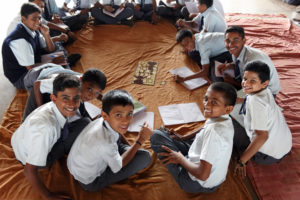
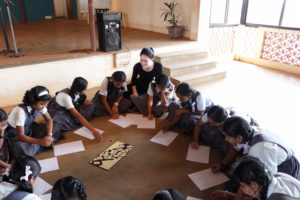
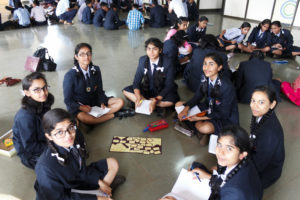
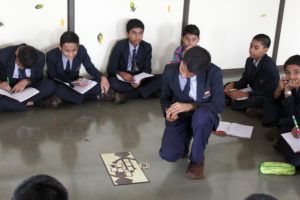
Learning Outcomes
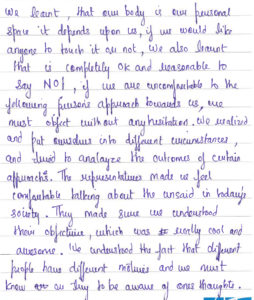
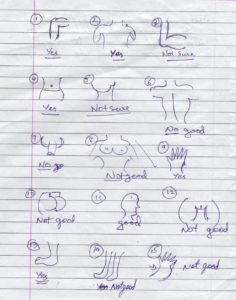
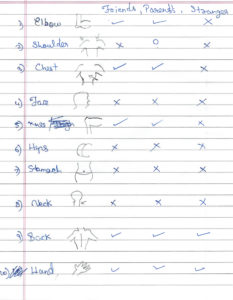
IMPACT
Our main goal for TOUCH was to educate the hundreds of children we worked with. We were surprised by the impact it had on the educators and advocates themselves. Being such a sensitive topic, TOUCH became a way for them to begin conversations with the children. TOUCH is currently seeking funding opportunities to reach analogous communities and looking to collaborate with organizations who would like to help further develop the tool. The project was showcased at the 2017 Games for Change Festival in New York City.
Media coverage: https://allaboutbelgaum.com/news/creating-social-change-play-recognize-good-touch-bad-touch



